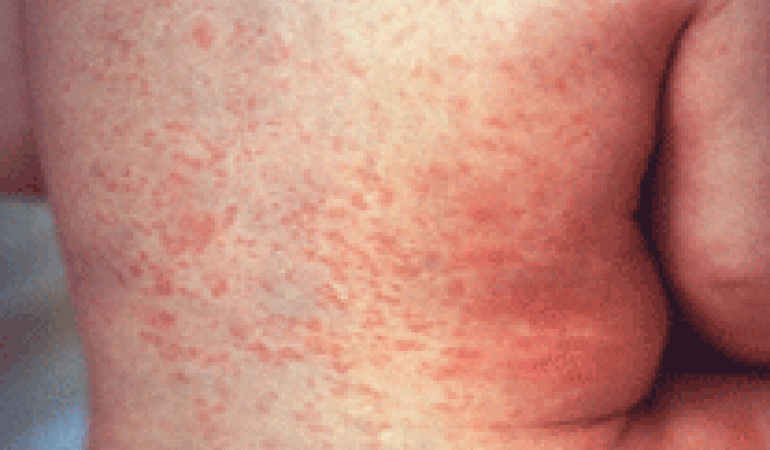
Some areas of the Netherlands where families for religious reasons chose not to get their babies vaccinated are now reporting cases of measles, and it is expected that the number of cases will increase. The Minister of Health announced today that children who have an increased risk of becoming infected with measles are being offered an extra vaccination. The Dutch population is, in general, well protected against measles thanks both to childhood vaccinations and immunity induced by the disease itself.
Outbreak
This new outbreak of measles in regions with relatively low vaccination coverage began at the end of May. Many people living in these areas belong to the orthodox Protestant churches and have for religious reasons declined to let their families be vaccinated. It is therefore likely that measles will spread further because a relatively large number children living in these regions are not protected against the disease.
Measles
Measles is a highly contagious viral disease, characterized by a rash. The disease manifests itself with a sudden fever, weakness, listlessness, cold symptoms and coughing. Within a week, red spots appear on the skin. Sometimes people with measles get a middle ear infection or pneumonia, and very occasionally, encephalitis. About 1 in a 1000 cases of measles proves fatal. There is no cure or treatment for measles but the majority of patients recover fully. Measles vaccination, which offers a very high degree of protection against the disease, has been part of the Dutch National Vaccination Programme since 1 January 1976.
Extra vaccinations
Last week, the Outbreak Management Team of the National Institute for Public Health and the Environment (RIVM) met, and advised the Minister of Health to offer an extra measles vaccination to children with a higher risk of contracting the disease.
The Health Minister has adopted the Outbreak Management Team’s
advice and the following groups have been invited for an extra
vaccination:
- Children aged 6 to 14 months who live in areas where less than 90% of the children have been vaccinated. This group will be sent an invitation for a measles vaccination in mid-July.
- Children aged between 6 and 14 months, whose family belongs to the orthodox Protestant churches, irrespective of where they live. They will be invited using channels other than an invitation sent to the family home.
For children with a high risk of exposure to measles, the positive aspect of a rapid protection must be weighed against the negative aspect of possibly having less immunity i.e. fewer antibodies to measles in the long term. That is why it has been decided to offer an extra vaccination against Mumps, Measles and Rubella to children living in areas where there is a low vaccination coverage. Vaccination at the age of 14 months will provide optimal protection in children who have little risk of coming into contact with people with measles.
‘Catch-up’ vaccination
Children with no protection against measles because they have
not been vaccinated as part of the National Vaccination Programme,
are still advised to get vaccinated. Parents of children aged
between 1 and 4 years can contact their local Children’s Health
Clinic, whilst parents whose children are between 4 and 18 years
old, can contact their regional Health Care Centre.